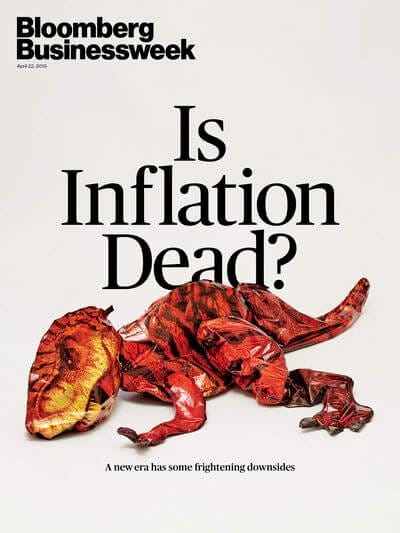The 'Tourist is Back
Some news from Kevin Muir

Well folks, I have some news. I have left my job at East West Investment Management. Before I tell you my next plans, I would like to take a moment to thank everyone at East West. It's been a great experience. Over the past couple of years, we had almost fifty different fund managers through our doors. Listening to their pitches, evaluating the investing merits of their plans, and helping construct portfolios for our high-net worth clients has been a tremendous experience. It has made me a better investor and my only hope is that I have contributed to East West as much as I have gained from my time with the firm. I leave behind good friends of many decades and wish them continued success.
As for me, I am returning to my roots as a prop trader. I will have more to tell you in the coming weeks, but for now, let's just say that I was born to trade, and like a seal sunning itself on the rocks, eventually a return to the water is where I feel most at home.
What does that mean for the MacroTourist newsletter?
It's back to days of old!
Some of you have commented how my writing frequency has diminished lately. I hear you loud and clear. Rest assured I plan to resume my old schedule. One big warning: my compliance department was also my editor. Although I will now be a little more free in the joke department, expect my grammar errors to also increase. It's probably a fair trade-off though...
My longer-term goal
Over the longer term, my goal is to create a fund that will take advantage of what I believe to be the next major market disruption - a return of inflation and a breaking of the negative correlation between stocks and bonds.
I believe we are on the cusp of a dramatic economic shift. In 1981 no one could imagine inflation doing anything except go higher. Today we are at the opposite extreme. Investors are convinced the three D's (debt, demographics and disinflation from technology) doom us to a world of extremely low inflation (and interest rates).
The world has become so confident in this view that this summer, Austria's 100-year bond yielded less than 61 basis points! German 10-year bunds ticked at negative 75 basis points! The long end of the US bond market saw the 30-year yield fall from 3.45% to 1.90%. Even though this price action had all the hallmarks of a bubble (suspended disbelief in fundamentals, simple extrapolation of trends counting as analysis and greater fool theory on obvious display with yields trading at nominal negative rates which guarantee a loss unless they are sold at an even more negative yield), few investors were willing to label it a mania. Not only that, the ones who did were labeled Luddites who didn't understand the new era.

Having been through a couple of bubbles (the DotCom and then the 2000s real estate/credit mania), this is the exact sort of psychology I would expect in a bubble. If people were skeptical, then it wouldn't be a bubble.
Manias are obvious only in hindsight. In the midst of them, the vast majority of investors believe the narrative responsible for blowing the bubble larger. If they didn't, it wouldn't become a bubble.
Now you might be saying, "but Kevin, this trend has been going on for a long time, you might be right - but you're too early."
Maybe. Won't claim to know the future path of markets.
Yet as one of my all-time favourite market historians once said when asked "what's the catalyst?"
"I don't need one, good things tend to happen to cheap assets." - Jim Grant
Inflation protection is cheap
Inflation has been almost priced out of financial assets. No one believes it will return, so there is little reason to hedge for it. Inflation protection is dirt cheap.

And if you force me to give a catalyst for a change in the inflation scenario - I'll give you two; an increased understanding of the differences in monetary and fiscal policies in creating inflation, and the reversing of the trend of globalization. Both influences have the ability to sneak up on investors and create inflation just when they have become convinced that "inflation is dead."
Remember - what everyone knows for sure but just ain't so, is the very thing that gets you in trouble. In the early 1980s, inflation was running double digits, the 30-year treasury bond was yielding 15% and the stock market had gone sideways for a little more than a decade. The baby boomer generation was just coming into their own, and few believed they were about to become the most prosperous generation America had ever seen.

If you took the advice of the gurus of that era, you would have been petrified of inflation and forgone one of the greatest bull markets in the history of finance as the 30-year treasury bond yield fell from 15% to 2%.
Today's generation of gurus are trying to convince you this trend of ever-lower interest rates is inescapable and that yields will continue their downward path forever. I have searched my history books and I can't find a single country that has ever collapsed due to deflation, but these market pundits somehow believe that deflation is the real problem.
I have no monopoly on predicting the future, so maybe they are right. Maybe society will collapse due to deflation as we ignore our understanding of what creates inflation and cling to past economic beliefs. It could happen. A good trader learns to never say never.
However, this is not the proper bet. It would be like someone buying the Nasdaq 100 index at the turn of the century. Sure there were another 1,000 points in it as the index screamed from 3,600 to 4,600 in that first quarter of 2000, but the next 3,800 points were down. The risk-reward was completely skewed to the downside.

Today the risk-reward on inflation is tilted to the upside. And the best part? Few are pricing in this risk so investing for this outcome is cheap, cheap, cheap.
My other big worry
When I think about the biggest risks out there, a lack of appreciation for the potential return of inflation is number one, but close behind is investors' belief that the negative correlation between stocks and bonds will continue.
Too many investors are assuming that if the stock market portion of their portfolio encounters rough seas, their bond portion will act as a ballast and provide cushioning to their total return. This negative correlation between stocks and bonds has been a consistent relationship for the past forty years, so it's easy to understand why investors feel this way.
Yet what if the bonds don't act as a ballast but are instead the anchor that drags the portfolio downward? In periods of inflation, bonds and stocks have typically been positively correlated. That means that higher yields leads to lower stock prices.
A return of inflation is the one thing shockingly few are positioned for, and therefore, offers a terrific opportunity.
The inflation bet
I am unsure how to structure a product/fund to take advantage of this belief, but if you are interested or have some ideas for me, then please don't hesitate to reach out to kevin@themacrotourist.com.
The MacroTourist newsletter
In the meantime, I am excited about this next chapter in my life. I have long advocated for young people interested in trading to work hard on their R or Python programming. Taking this advice to heart, I have been brushing up on my coding skills and I look forward to sharing some new ideas I have about markets.
My goal for the MacroTourist over the coming year is to expand the breadth of topics I write about. Too often I have stuck to big picture macro issues and foregone writing about specific investment situations. That's going to change. Expect a wider range of subjects in the months ahead.
I write this letter to clarify my thinking about markets, but most of all - I enjoy it. Hopefully along the way you might also learn something or see a situation from a different angle you hadn't considered before. That would be great. Yet I would be most happy if I just made you smile.
Thank you for reading. I am all too aware of the overwhelming amount of research out there, and I appreciate you taking the time to read my pieces.
I think we are about to experience some truly momentous changes in financial markets over the next decade and look forward to sharing this journey with you.
Your excited-about-the-future trader,
Kevin Muir
the MacroTourist
PS: As you might have noticed, I changed up the website. I have also changed the way the email newsletter is distributed. If you have any troubles, then please shoot me an email - kevin@themacrotourist.com.

